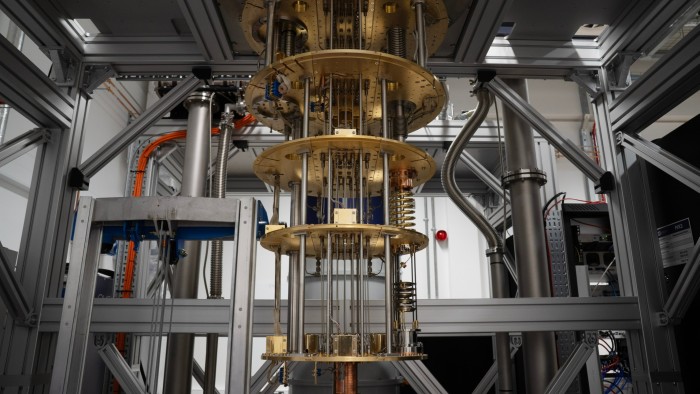Unlock the Editor’s Digest for free
Roula Khalaf, Editor of the FT, selects her favourite stories in this weekly newsletter.
The UK is to invest more than £500mn in emerging technology based on quantum physics that experts say has the potential to transform economic and national security.
The government’s support will be welcomed following questions about what would replace an ambitious Conservative pledge in 2023 to invest £2.5bn over 10 years and project Britain as a world leader in quantum technology.
The quantum industry’s backers say it will potentially transform areas ranging from the discovery of advanced industrial materials to the imaging of the human body. Quantum computers offer a route to improved communications security and one day may be able to break traditional encryption methods.
“Making sovereign quantum computing capacity is important for both national security and economic resilience,” said Gerald Mullally, interim chief executive of Oxford Quantum Circuits, a quantum computing company.
The government’s four-year investment in quantum computing is due to be announced on Monday as part of the broader industrial strategy, according to people familiar with the matter. That announcement is likely to be followed by news of further money for quantum technologies, adding to initiatives such as the £100mn announced last year for five new research hubs. The backing dovetails with the launch last year of a National Quantum Computing Centre to host machines “designed to push the boundaries of what is possible with the technology”.
Quantum was one of several science and technology strategies announced late in the last Conservative government that Labour has reviewed since taking office last July, partly to examine if funding was available.
Quantum technologies exploit how the behaviour of matter at the scale of atoms and their constituent particles can differ sharply from the physics of everyday objects we experience.
Quantum sensing has been tested as a possible method to more accurately locate London Underground trains. Quantum imaging is being developed to scan brain health, including for early signs of dementia.
Tom Grinyer, chief executive of the Institute of Physics, said quantum technologies would be “as much of a game-changer for humanity as artificial intelligence or the internet”.
“We cannot afford to let [the UK’s] advantage slip and the government must recognise quantum as the national priority it is, just like AI, data and green energy,” Grinyer said. “If we don’t invest, others will — and we risk being left behind in the post-quantum world.”
Another driver of government interest is the sales of British quantum-focused businesses to US companies. The acquisitions of Oxford Ionics and the quantum computing arm of Oxford Instruments have both been announced this month.
Lord Patrick Vallance, science minister, has spoken previously about the importance of supporting innovative UK science and tech companies to scale up independently.
UK official funding for quantum technologies was crucial because maintaining sovereignty in the sector had “never been more pertinent”, said Richard Murray, co-founder and chief executive of Orca Computing, which develops quantum machines.
“The global race for quantum computing is reaching prime time and we’ve seen several other countries put in sizeable commitments to make sure that they seize a share in this future market,” Murray said.




